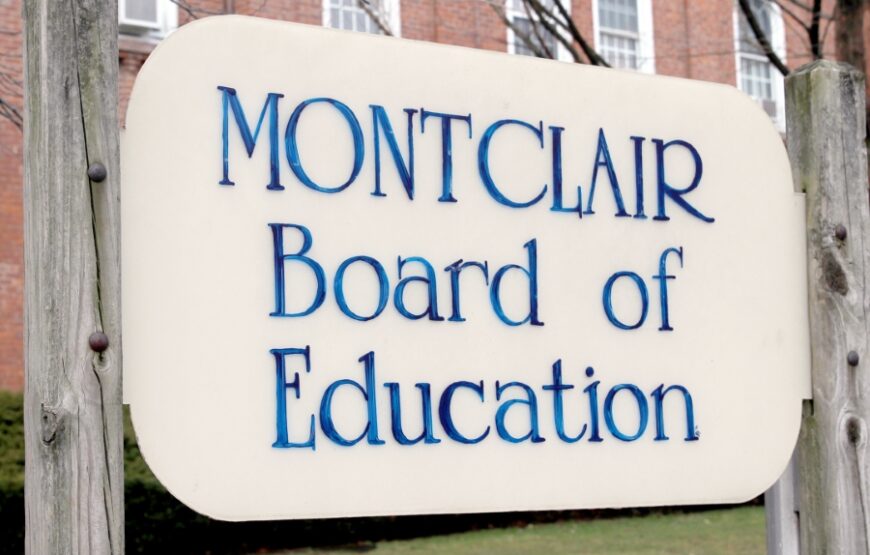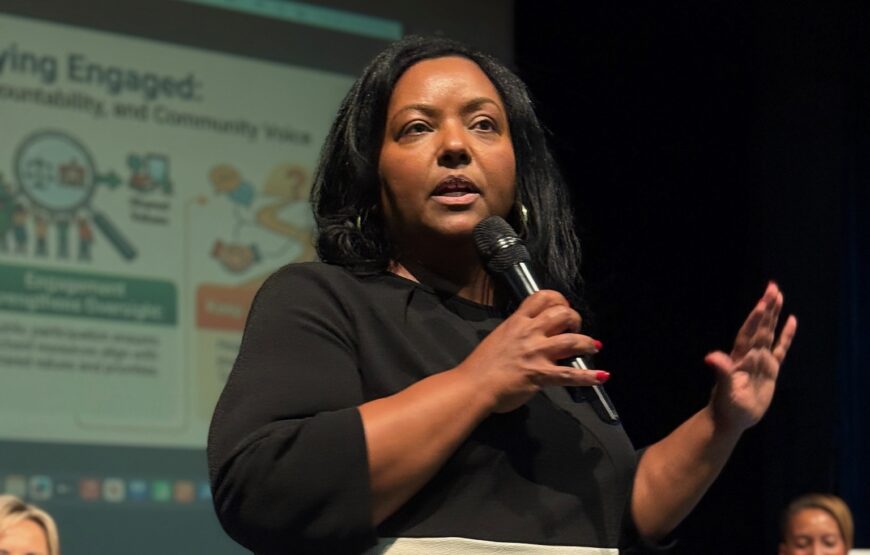Photo Credit: Montclair Public Schools
Montclair residents will soon decide how to address the school district’s mounting financial crisis.
On Tuesday evening, the Montclair Board of Education voted unanimously to hold a special election on December 9, allowing voters to decide whether to approve a tax levy to close the district’s multimillion-dollar budget gap or accept state aid, along with the accompanying state oversight.
There will be two questions on the ballot:
- Question 1 would raise taxes to cover the 2024–2025 deficit of $12.6 million.
- Question 2 would raise taxes to cover the 2025–2026 deficit of $7 million.
How Montclair schools Got Here
The roots of the deficit stretch back years. Interim Business Administrator Dana Sullivan and Superintendent Ruth B. Turner, who both began their roles on July 1, uncovered a cascade of unpaid bills and under-budgeted expenses that together left the district $19.6 million in the red.
Turner told The Montclair Pod in September that the problems became apparent almost immediately after she took office.
“It was very clear to us that things just did not seem to add up,” she said. “We started getting invoices from folks saying, ‘Hey, you still owe me money.’ And I’m not talking about $10,000 here or $5,000 there.”
Among the unpaid obligations were $4.5 million owed to the district’s regional schools and outstanding utility payments. Turner said the issue wasn’t fraud, but a pattern of poor financial management.
“There’s no evidence of fraud,” she emphasized. “It’s really incompetence, it’s bad accounting. And it’s also administration’s inability to say no.”
Turner also linked the deficit to years of under-budgeting key line items like salaries and benefits.
“You paid insurance, you paid salaries, but there were other things that you were not paying that then carry over year after year,” she explained. “We owe people money.”
What’s at Stake
If voters approve one or both ballot questions, Montclair could repay its state loan, balance its books, and retain full local control. Rejecting the levies would trigger state aid, and likely bring state-appointed fiscal oversight, limiting how the district spends in the future.
Turner has said she welcomes transparency but warns that financial realities can’t be ignored.
“We cannot behave as if we don’t have a deficit,” she said. “When there has been a request for something outside of the budget line, previous administrations would cave in. That is irresponsible at best. The community has to be in support that we have to be financially healthy.”
While she acknowledges the strain such cuts place on families, Turner said the district has already eliminated travel and reduced supply budgets this year, adding, “We have to live within our budget.”
Looking ahead
In recent weeks, Turner has continued to stress that Montclair’s fiscal issues are part of a broader statewide challenge.
“Every superintendent I’ve spoken to is facing some level of financial hardship,” she said. “Teacher salaries increase just like the cost of living increases, healthcare increases, insurance increases… even if we stay flat, we’re not going to be able to keep up.”
Despite the magnitude of the crisis, Turner remains hopeful:
“I’m optimistic that if we are open and honest and willing to recognize that everybody’s not going to get everything they want, but everybody should have what they need. We can solve this problem. It’s a storm we’re in, but sunny days are ahead.”
If Voters Approve the Tax Levies
Montclair will raise enough local revenue to repay the $12.6 million state loan and cover next year’s projected $7 million shortfall.
- The district retains local control of its finances.
- Funds can be directed toward classroom needs, building maintenance, and restoring stability.
- Taxpayers would see a property-tax increase estimated at roughly $1,117 for 2024–25 and $674 for 2025–26 (and recurring) for the average-valued home, according to Interim BA Dana Sullivan.
If Voters Reject the Tax Levies
Montclair would turn to state aid to cover the deficit.
- The district would enter a period of state fiscal oversight, with outside officials monitoring how funds are spent.
- Major budget decisions, including hiring, contracts, and capital projects, could require state approval.
- Local autonomy over how schools operate would likely shrink, at least temporarily.
- SlushieGate Comes to Montclair Schools
- The People’s Lawyer Reflects: Matt Platkin on Power, Accountability, and What Comes After Office
- Montclair Honors Dr. Martin Luther King Jr. With a Weekend of Service, Worship, and Community
- Not a Verona Resident? You Can Still Join the Verona Pool in 2026
- Montclair’s Budget Reality Check: Inside the School District’s Latest Town Hall




